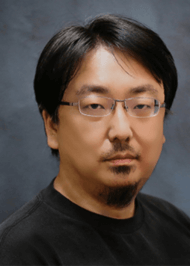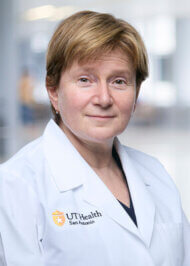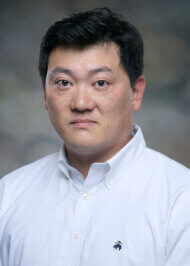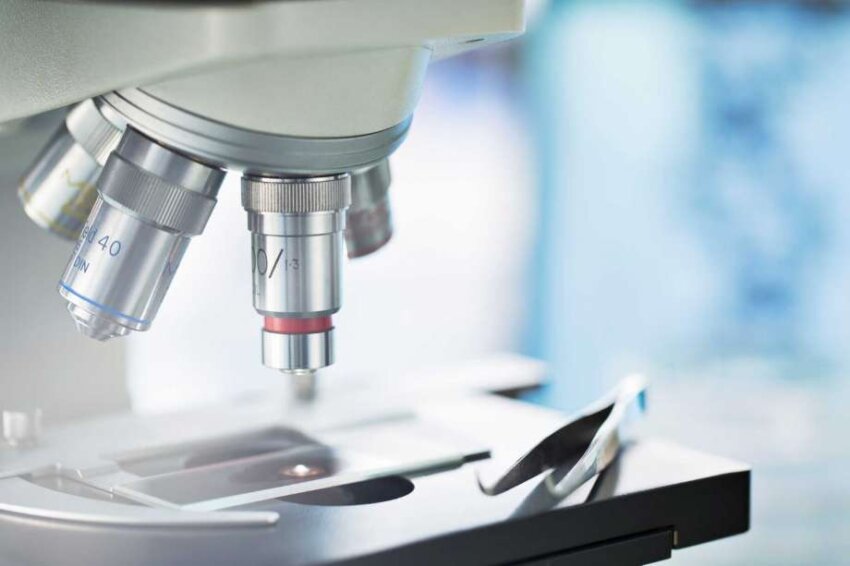Content contributed by Steven Lee
The University of Texas Health Science Center at San Antonio (UT Health San Antonio) has secured approximately $16.4 million in funding from the Cancer Prevention and Research Institute of Texas (CPRIT) since last August, which will be utilized to help advance research into cancers that affect children and adolescents as well as bring three noted cancer researchers to the institution.

Katsumi Kitagawa, PharmD, PhD, associate professor in the Department of Molecular Medicine in the Joe R. and Teresa Lozano Long School of Medicine at UT Health San Antonio and investigator in the Greehey Children’s Cancer Research Institute, received $1.4 million to advance research into Ewing’s Sarcoma, the second most common primary malignant bone tumor in children and adolescents.
“A potential target for therapy is chromosome instability (CIN) in EwS (Ewing’s Sarcoma) cells. These cells display frequent chromosome gains or losses due to CIN,” explained Kitagawa in his proposal for CPRIT funding. “How CIN occurs in EwS is unknown. CENP-A is an essential component of the centromere, the chromosome locus that mediates chromosome segregation. Neocentromeres (newly created centromeres at non-centromeric regions) or dysfunctional centromeres promote CIN. Our goal is to learn how centromere dysfunction leads to CIN in EwS, and our hypothesis is that EWSR1-FLI1 promotes centromere dysfunction, a crucial driver of CIN.”
“CPRIT’s support will enable Dr. Kitagawa to develop novel therapeutic strategies for treating Ewing’s Sarcoma, a common pediatric bone cancer,” said Patrick Sung, DPhil, professor of biochemistry and structural biology, director of the Greehey Institute and interim executive director of Mays Cancer Center.
CPRIT Scholars recruited to UT Health San Antonio

Used with permission.
Simon Gayther, PhD, a renowned cancer researcher at Cedars-Sinai Medical Center whose breakthrough studies have focused on understanding the underlying causes of ovarian cancer initiation and development, will join Mays Cancer Center at UT Health San Antonio and the Department of Medicine next month, from $6 million in CPRIT funding approved Aug. 16. Also that month, $999,999 was approved by CPRIT to expand a program of human papillomavirus (HPV) vaccination among survivors of childhood cancer.
Gayther will join as professor of medicine, Mays Family Endowed Chair in heritable oncogenesis and inaugural director of the school’s Center for Heritable Oncogenesis. Oncogenesis refers to the induction or formation of tumors.
He will be part of the Population Science and Prevention Program of Mays Cancer Center, one of only four National Cancer Institute-designated Cancer Centers in Texas. He will devote most of his effort to his internationally acclaimed research program in genetic epidemiology and functional biology of risk variants associated with ovarian, breast and prostate cancers.
“Dr. Gayther will add transformative expertise to our cancer-focused programs, help recruit outstanding investigators to further strengthen our Population Science and Prevention Program, help achieve our institutional vision of becoming a premier research center in understanding the molecular bases of oncogenesis, and bolster our outreach and education in cancer science, and the discovery and development of novel therapeutics,” said Patrick Sung, DPhil, professor of biochemistry and structural biology, director of the Greehey Institute and interim executive director of Mays Cancer Center.
Gayther’s particular emphasis will be on explaining the multi-factor basis of familial and sporadic breast and ovarian cancer stemming from mutations in the tumor suppressor genes BRCA1 and BRCA2 – and how ancestry, environmental exposures and lifestyle affect cancer susceptibility, progression and treatment outcome. He also will mentor graduate students in the PhD and MD/PhD tracks from the school’s Integrated Biomedical Sciences Graduate Program.

In addition, a $6 million CPRIT recruitment (CPRIT Scholar) funding will bring Anna Malkova, PhD, to UT Health San Antonio beginning April 8. Malkova, currently at the University of Iowa, will join UT Health San Antonio as a full professor in Department of Biochemistry and Structural Biology. She will become a member of both the Greehey Children’s Cancer Research Institute and the Cancer Development and Progression Program of the National Cancer Institute-designated Mays Cancer Center, serve as the Mays Family Endowed Chair in DNA Repair Genetics as well as a mentor in the Integrated Biomedical Sciences Graduate Program.
“We are thrilled to have Dr. Malkova join our faculty and add an exciting new dimension of research to our overall efforts in DNA repair and cancer biology,” said Reuben Harris, PhD, professor and chair in the Department of Biochemistry and Structural Biology and esteemed Howard Hughes Medical Institute Investigator. “This will stimulate many new collaborations and undoubtedly lead to new cancer therapy insights.”

A $2 million CPRIT recruitment grant recently brought Yu Luan, PhD, from Northwestern University. Yuan is an assistant professor in the Department of Cell Systems and Anatomy and an investigator with UT Health San Antonio’s Greehey Children’s Cancer and Research Institute. Luan’s laboratory is dedicated to the detection and characterization of epigenetic and chromatin topology alterations during tumorigenesis (the formation or production of tumors); and focused on developing algorithms and computational tools to elucidate the impact of genetic variants and transposable elements on human diseases.
“We are delighted to recruit Dr. Luan as an assistant professor on the tenure track in the Department of Cell Systems and Anatomy with associate membership in the Greehey Children’s Cancer Research Institute,” said Christi Walter, PhD, professor and chair in the Department of Cell Systems and Anatomy. “Dr. Luan is key to realizing our institutional goal of a world-class blood cancer research program and is expected to help drive the development of new, efficacious treatment regimens for pediatric Ph-like ALL and relapse prevention. Luan’s research will synergize with existing investigators and programs for the clinical translation of findings, nucleate team science projects and grant applications, and advance our training and mentoring missions.”


